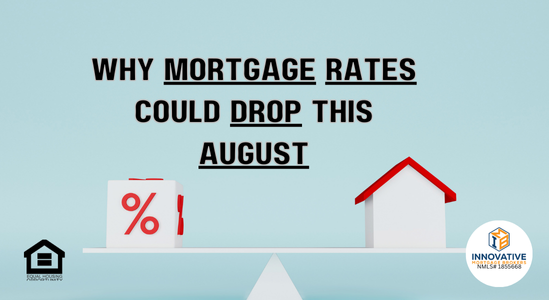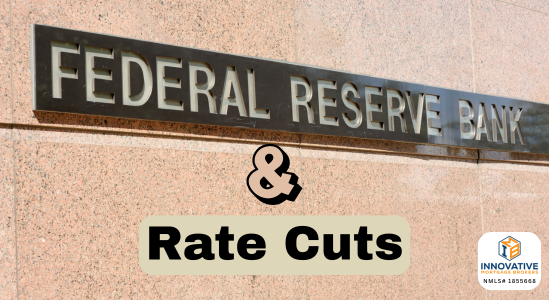Mortgage rate volatility, oil shocks, and why execution matters more than quotes When a war…
How Mortgage Interest Rates Could Drop This August: What Homeowners and Homebuyers in Pennsylvania and Florida Need to Know

As a homeowner or prospective buyer, staying informed about mortgage interest rates can be crucial for making sound financial decisions. This August, there are several factors in play that could potentially lead to a decrease in mortgage rates. Understanding these factors can help you better plan your home financing strategy.
Economic Factors Influencing Mortgage Rates
- Federal Reserve Policies: The Federal Reserve’s actions significantly influence mortgage interest rates. If the Fed decides to lower the federal funds rate or signals a more dovish monetary policy, mortgage rates could follow suit. Keep an eye on Fed announcements and meeting minutes for clues on future rate cuts.
- Inflation Trends: Inflation is another key driver of interest rates. When inflation is low, lenders can offer lower rates because the money they lend retains more value over time. Recent data showing a slowing inflation rate could lead to lower mortgage rates.
- Economic Data Releases: Various economic indicators, such as employment reports, GDP growth, and consumer spending, provide insight into the economy’s health. Weak economic data can push mortgage rates lower as investors seek safer, lower-yield investments like government bonds, which mortgage rates often track.
Global Economic Conditions
- Geopolitical Events: International tensions and uncertainties, such as trade disputes or political instability, can impact global financial markets. Investors tend to flock to safer assets during uncertain times, which can drive down mortgage rates.
- Global Economic Slowdown: A slowdown in major economies, such as China or the Eurozone, can also affect U.S. mortgage rates. Sluggish global growth can lead to lower interest rates as central banks worldwide adopt more accommodating monetary policies.
Market Sentiment
- Investor Behavior: Mortgage rates are influenced by the bond market. When investors buy more mortgage-backed securities (MBS) due to perceived market risks, the increased demand can lower mortgage rates.
- Stock Market Volatility: Significant stock market volatility often drives investors towards the relative safety of bonds. This flight to quality can result in lower mortgage rates as bond prices rise and yields fall.
Seasonal Trends
- Housing Market Cycles: Historically, mortgage rates can experience seasonal fluctuations. For instance, rates might dip slightly during slower home-buying seasons, such as late summer or early fall, as lenders compete for a smaller pool of buyers.
Why Now is a Great Time to Buy
With mortgage rates potentially dropping, now might be an excellent time to purchase a home due to the current lower demand. When rates decrease, buyer interest typically spikes, leading to increased competition and higher home prices. By buying now, you can take advantage of less competition and potentially secure a better deal on your new home. As more buyers enter the market, home prices are likely to rise, making now an opportune moment to invest in real estate before the demand surges.
What This Means for You
If you’re considering buying a home or refinancing your current mortgage, it’s important to stay updated on these economic indicators and market trends. Here are a few steps you can take to make the most of potentially lower rates:
- Monitor Rate Trends: Keep an eye on mortgage rate trends and news from the Federal Reserve. Websites like Freddie Mac and Fannie Mae offer weekly updates on average mortgage rates.
- Consult a Mortgage Broker: A good mortgage broker can provide personalized advice and help you navigate the complexities of securing competitive rates.
- Evaluate Your Financial Situation: Ensure your credit score, debt-to-income ratio, and overall financial health are in good shape to qualify for competitive rates.
About Us
At Innovative Mortgage Brokers, we pride ourselves on providing personalized mortgage solutions tailored to your unique financial situation. With many years of experience, we specialize in helping clients obtain residential mortgages (1-4 units) faster, easier, and cheaper. Our services include conventional loans, FHA, USDA, and Non-QM loans, whether you’re a first-time homebuyer, an investor, or looking to upgrade your current home.
Our team is committed to making the mortgage process as straightforward and stress-free as possible. We believe in clear communication and education, ensuring you understand all your options and feel confident in your decisions. Based in Philadelphia, we serve clients throughout Pennsylvania and Florida, offering competitive rates and great customer service.
Whether you’re considering refinancing, or purchasing a new home or investment property in Pennsylvania (PA) or Florida (FL), we’re here to help.
Conclusion
Understanding the factors that influence mortgage interest rates can help you make informed decisions about your home financing. This August, keep an eye on economic indicators, global conditions, and market sentiment that could lead to lower rates. By staying informed and working with experienced professionals, you can secure the best possible mortgage terms and achieve your homeownership and investment goals.




